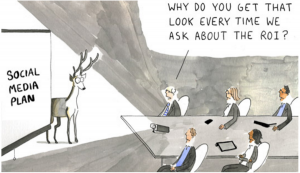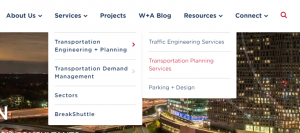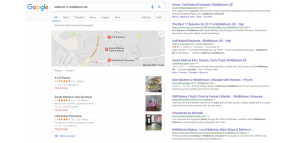 Field teams are an integral part of most mobile service companies’ success, but it’s not enough for a business to simply build a team of reps and send them out to do their job as they see fit. Problems such as missed appointments, an inefficient use of time and resources, and a lack of accountability can all arise while reps are on the job, ultimately resulting in lost business and a damaged reputation in the eyes of customers.
Field teams are an integral part of most mobile service companies’ success, but it’s not enough for a business to simply build a team of reps and send them out to do their job as they see fit. Problems such as missed appointments, an inefficient use of time and resources, and a lack of accountability can all arise while reps are on the job, ultimately resulting in lost business and a damaged reputation in the eyes of customers.
One way to combat these issues is to engage in effective territory management. Studies show that, done right, territory management can enhance customer coverage, boost sales, improve employee performance and lower costs. Supplemented with the right field service software solution, territory management can combat the problems mentioned above and ultimately allow your service company to grow.
Increased Field Team Efficiency
Effective territory management starts with segmenting your customers into different territory groups. Customers can be divided in many different ways, such as by geographic location, size or demographics, but it’s important to make sure that the resulting territories are relatively equal. Doing so will evenly distribute opportunities and foster an atmosphere of fair, healthy competition between reps.
If possible, field service reps should be included in the territory-drawing process. As the only ones who have eyes and ears on the ground, reps can contribute valuable insights and ensure that the resulting segments are constructed to maximize efficiency. In addition, involving reps right from the beginning creates a sense of ownership surrounding daily tasks and boosts internal motivation.
Assigning reps to cover different territories is the next step in effective territory management. Managers should take into consideration the unique capabilities that different reps posses and make an effort to match reps with the territory that best suits their strengths. Personal connections should also be noted when delegating reps; especially in the service industry, strong relationships with customers are incredibly important to preserve. Ultimately, the more time and care that is taken when preliminarily drawing territories and assigning workers, the more productive reps will be while on the job.
Lowered Costs
Managing a remote team is can be costly in ways that managing a traditional team is not. Mobile field service costs don’t only include the physical resources used, such as fuel and transportation costs, but also the extra time and energy that managers must expend to monitor employees from a distance. However, leveraging mobile field service software to assist with territory management can significantly reduce these costs.
To address the physical costs of remote service work, mileage trackers allow managers to monitor how long it takes reps to get from one location to another in real time. As a result, inefficiencies that are cutting into potential on-site work can be pinpointed and quickly remedied. In addition, digitally recorded mileage enables reps to spend more time focused on customers and less time recording their trips by hand.
Remote management costs can be addressed with workforce tracking software, which helps managers create a culture of accountability from the comfort of their own desk. Teams who know that their activities are being monitored via mapping and employee time tracking functions will be motivated to stay on task throughout the day. Workforce tracking can also promote accurate reimbursement to reps for their travel expenses, ultimately improving relationships between employees and managers and eliminating disputes over time spent on the road.
Improved Customer Service
Customer service expectations vary from industry to industry, so knowing what customers expect in your business’s industry is a necessary first step before you can set out to exceed those expectations. Word-of-mouth referrals and a reputation for an exceptional customer experience can be the difference between a company’s success or failure.
Poor territory management can greatly damage customer relationships. When service workers are late to appointments or miss them all together because of team miscommunication, customers are left unsatisfied. In addition, a constant reshuffling of reps from one territory to the next can make it hard to build loyal or personal connections between a business and its client base.
On the other hand, good territory management enhances customer service in a variety of ways. As mentioned before, drawing territories conscientiously will minimize the amount of re-organization that needs to happen down the line, enabling reps to build stronger bonds with customers. Such relationships are primed to result in referrals and new business. In addition, implementing a service management software solution that supports team scheduling and team communication can help avoid missed appointments and incorrect scheduling.
Taking the time to plan and implement an effective territory management strategy is an essential task for any service company to undertake if it wants to maximize field team efficiency, minimize the costs of remote work, and maintain customer satisfaction. Leveraging the right mobile field service software solution can make the job of territory management even easier and differentiate a service company from its competition.
Business & Finance Articles on Business 2 Community
(101)









